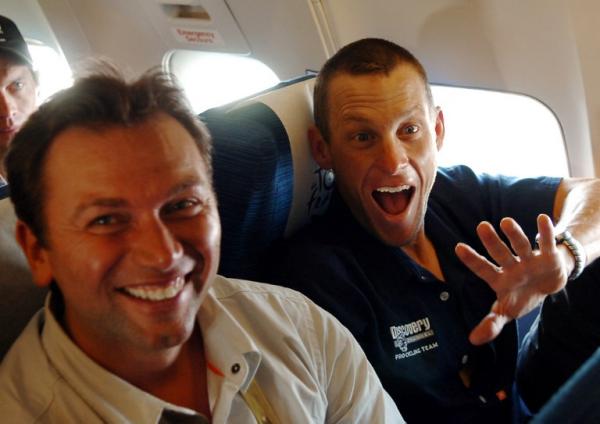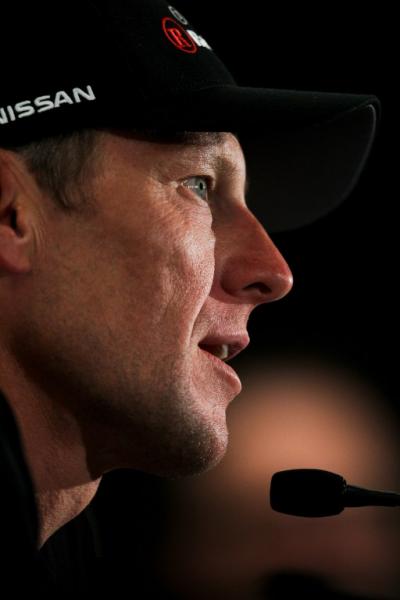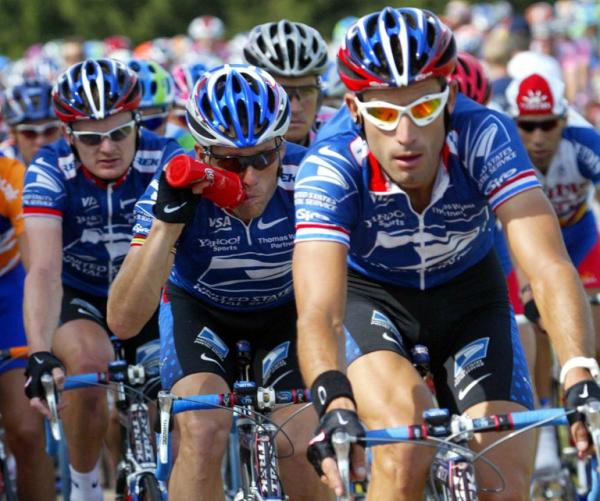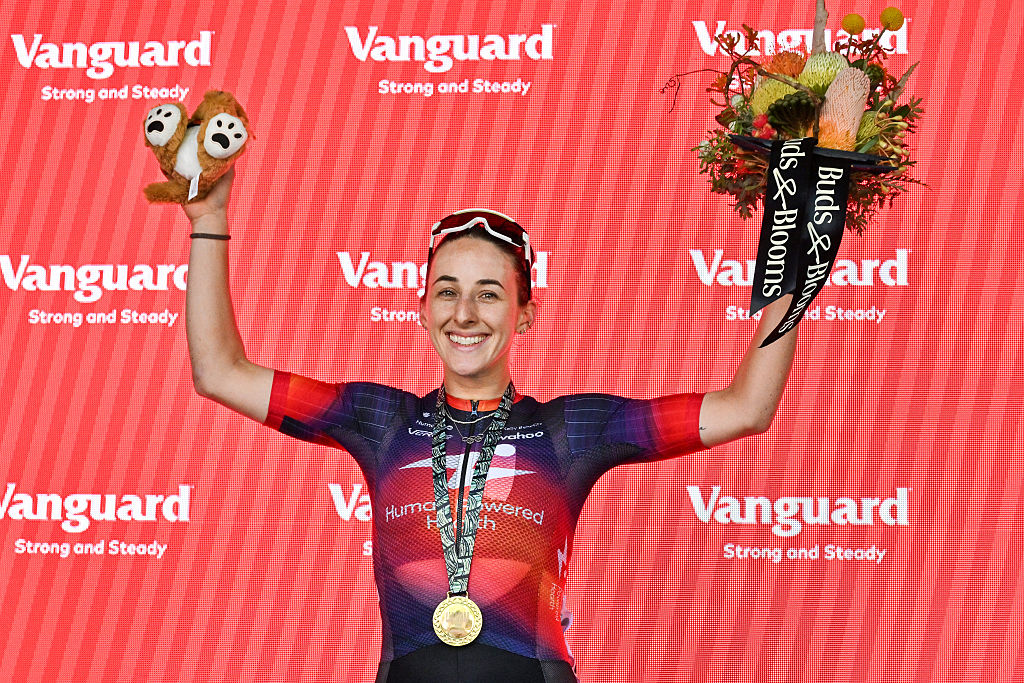The Lance Armstrong fairness fallacy
Opinion on the USADA case and the future of cycling



There is a word that Lance Armstrong's attorney Tim Herman uses repeatedly in his letter to the US Anti-Doping Agency, the one that rails against the agency's "reasoned decision" by arguing that it was USADA itself that was engaging in "improper conduct" with its "taxpayer-funded witch hunt": that word is "fair".
Andreu sacking still vague, no response from management
Armstrong reacts angrily to Andreu confession
Vaughters admits to doping during career
Frankie Andreu responds to Armstrong's ban
Vaughters confirms past doping by Danielson, others at Garmin
Riders react to USADA reasoned decision
Brailsford stunned by USADA disclosures
Wiggins: USADA Armstrong case 'pretty damning'
Pévenage "shocked" by details of USADA report
He calls the USADA process unfair four separate times, speaks of fair proceedings and fairness three times, and talks about "fair-minded Americans" in three separate instances. Why is Mr. Herman so concerned with fairness and these "fair-minded" Americans?
There is a defence in the legal world relating to libelous statements, at least in the US, that protects free speech by allowing "fair comment" about a public person, ie. (according to dictionary.law.com) "a statement of opinion (no matter how ludicrous) based on facts which are correctly stated". In the land of the free, home of the brave, a writer can "make statements about a public person" [such as Lance Armstrong] "even though untrue and harmful, ... unless the victim can prove the opinions were stated maliciously - with hate, dislike, intent and/or desire to harm."
In the United Kingdom, however, journalists have much less protection under the law, and can be subjected to libel suits quite easily. This happened to the Sunday Times when it published the words of David Walsh, who eight years ago, together with L.A. Confidentiel co-author Pierre Ballester, first lifted the lid on Armstrong's doping activities.
Armstrong sued the Sunday Times for libel, and won an unspecified settlement and an apology, because a judge decided that the article portrayed Armstrong as a "fraud, cheat and a liar".
"The Sunday Times has confirmed to Mr Armstrong that it never intended to accuse him of being guilty of taking any performance-enhancing drugs and sincerely apologised for any such impression," was the apology it was forced to make.
The brilliant part of UK law is that the publisher and author do not have to have in their possession facts which support their comments at the time they were published - if facts subsequently come to light supporting the original comments, they did not commit libel. That appears to now be the case for the Times, and there have been reports that they are considering returning the legal favour now that the USADA has brought to light numerous sworn statements that support everything that Walsh wrote in his book and in the Times.
The latest race content, interviews, features, reviews and expert buying guides, direct to your inbox!
"As USADA ramps up its press leaks and press releases this week and then trots out what it has pressured and coerced from others, we know that fair minded people will see whatever USADA issues is far from a 'reasoned decision' and is instead further evidence of the vendetta by USADA and its talebearers seeking publicity by targeting Mr. Armstrong, his business relations and the Lance Armstrong Foundation," wrote Herman.
One has to wonder what really is in the minds of the fair-minded people of these United States - those just, unprejudiced citizens who are "marked by impartiality and honesty". Do they believe USADA has suddenly joined forces with Big Tobacco to take down Livestrong? Do they think an agency which fights to protect the health of athletes by fighting doping as its mission statement is supporting smoking?
One has to wonder what really is in the minds of those fair-minded, kindly folks, as they sip their coffee and read the morning news.
Do they think it was fair that Armstrong, who, in the sworn testimony of Stephen Swart, was understood to be using EPO for the 1995 Tour de France when he won the stage to Limoges?
Maybe they would think it unfair that Armstrong was never warned of any abnormal values for human chorionic gonadotropin, in his doping controls when the cancerous tumour in his testicle was busy growing to the size of an orange - values that should have shown up when he was undoubtedly dope-tested after winning Flèche Wallonne in 1996, values that could have caught his cancer months earlier, before it sent seeds of cancer to his brain and lungs.
Yet according to the sworn testimony of Jonathan Vaughters, Armstrong viewed that fact as leverage, as a sort of get-out-of-jail-free card, which he could use against the UCI should they catch on that he was, as USADA has shown him to be, the kingpin in a highly organized, widespread doping conspiracy.
Do the fair-minded people find it curious that after Armstrong returned from his cancer, returning literally from the brink of death, he jumped straight back into using the same risky drugs which could have contributed to or exacerbated his cancer in the first place?
Do the fair-minded people of the USA find it odd or fair that the UCI would, in 1999, accept a back-dated prescription for saddle sore cream after he tested non-negative for cortisone, essentially allowing the fraud that was his seven Tour de France victories to continue unchecked?
Do they think it was fair that Armstrong should encourage and even pressure his teammates to join his doping program in order to help him win not only those prestigious titles, but to rake in $750,000 in base salary in 2000, $3 million in 2001, upwards of half a million more each subsequent year - all out of the pockets of the US Postal Service, and therefore their own pockets every time they mail a letter?
Do they think it was fair that Armstrong was allowed to bully, intimidate and threaten anyone who should cross him, to ruin the businesses or careers of those who would dare speak the truth, or threaten the financial health of the newspapers, magazines and web sites who tried to expose his lies?
Do they think it was fair that Armstrong and his cohorts helped to scuttle a chance for cycling to make a new start after the Festina scandal, plunging the better part of a decade of the sport into the deep, dark depths of cheating, and leaving seven blank pages in the Tour de France history books?
I wonder if the average American, who last year made only $50,000 per year, thinks it is fair that Armstrong amassed a net worth upwards of $125 million based on deception, cheating and lying, and will get to keep a large part of that, the ends very much justifying the means.
Do they think it is fair that participants in the conspiracy continue to work in the sport, including mentoring young riders and directing WorldTour teams, while all the time we are to believe the sport is clean?
I applaud Matt White for volunteering to step down from GreenEdge and Cycling Australia, for admitting to his doping past and allowing himself to be judged before moving forward. I have utmost respect for Jonathan Vaughters for recognizing his mistakes, making these revelations and helping to change the culture of the sport. I thank the riders, past and current, for admitting to their part in the doping at US Postal and helping USADA to seal its case.
However I have yet to hear any voices from the European peloton coming out strongly against Armstrong and the damage he has inflicted upon the sport. The "we didn't see anything" from some former teammates and the comprehensive use of the term "shocked" by others in reaction to the USADA documents to me demonstrates that the code of silence is still firmly in place.
The Spanish had it right when they instigated Operación Puerto, the Italians were correct when they dug into 'Oil for Drugs' and the Mantova and Padova affairs. We know that doping is still rife in the sport, and we have the positives to prove it.
Until we have a day that pharmaceutical companies, pharmaceutical sales reps, pharmacists, doctors, veterinarians and gynaecologists have a real fear criminal prosecution for facilitating athletes abusing doping products, we will have difficulty achieving clean sport.
Until then, we can give out reduced bans for those athletes who choose to cooperate and spill the beans on their doping, but they will still have benefited physically from the enhanced training they've done under the influence, benefited financially from the palmares they've achieved, and deprived clean athletes of enjoying that success.
It is clear that the anti-doping agencies and the sport's governing body were ineffective in preventing widespread doping, and it has taken the efforts of a few visionaries like Vaughters and Bob Stapleton who recognized the risk to the sport as a whole and helped to change the culture from the inside.
Even if the sport is clean(er) now, the damage of the Armstrong era runs deep. It will take a collective critical voice coming from inside the peloton, the sport as a whole turning its back on Armstrong, his wealth and his influence, and a real financial risk to dopers - risks that will help to prevent the ends from justifying the means. As long as cheaters can take the money and run, there is no hope for a clean sport.

Laura Weislo has been with Cyclingnews since 2006 after making a switch from a career in science. As Managing Editor, she coordinates coverage for North American events and global news. As former elite-level road racer who dabbled in cyclo-cross and track, Laura has a passion for all three disciplines. When not working she likes to go camping and explore lesser traveled roads, paths and gravel tracks. Laura specialises in covering doping, anti-doping, UCI governance and performing data analysis.
